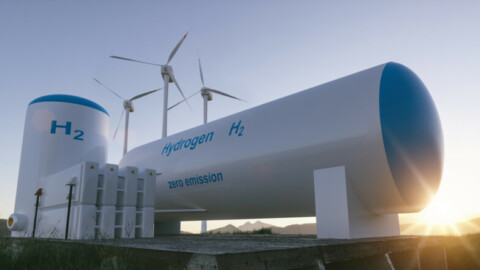The oil and gas industry is reimagining what the energy company of the future looks like, following the drive towards a low-carbon future, according to a new paper from Deloitte.
The report, Hydrocarbons to electrons – Crossing the chasm to the new energy future, examines how oil and gas companies are questioning what the energy transition will mean to their business, operations, customers, communities and their overall place in the global economy.
The paper highlights that there are indications the oil and gas sector is embracing the change.
A Deloitte survey of 74 oil and gas executives revealed an overwhelming positive view of renewables (68 per cent), while a further 27 per cent see the new energy era as a real business opportunity.
Deloitte Australia’s oil and gas leader, Bernadette Cullinane, said the energy transition is profoundly challenging the sustainability and resilience of traditional business models.
“As the energy sector faces this major transition to new energy, there is uncertainty over the
trajectory and pace at which it will unfold. Our survey results show over 50 per cent of respondents expect renewables will be a significant source of energy in Australia by 2025, rising to nearly 90 per cent by 2030.
“To prepare for and embrace the new energy future, companies will need to reshape their business models and reassess the oil and gas competencies required to ensure success in future decades,” Mr Cullinane.
Sixty-nine percent of survey respondents said they are in the process of preparing for, or are prepared for, renewables and are doing so through a number of avenues, including establishing new business models, upskilling workforces and creating new operating units.
While many oil and gas companies are already adjusting and preparing for the energy transition,
Mr Cullinane said it is imperative leaders develop plans and strategies in the event changes take place more rapidly than expected.
“The smart oil and gas company of the future will leverage its core competencies, including financing, technical and engineering strength and the ability to manage larger scale and more technically complex projects, while incorporating new capabilities such as greater agility and stronger business to consumer engagement to cross the chasm from one form of energy to another,” Mr Cullinane said.
Responding to climate risk
The paper shows that oil and gas companies are already reacting to the technology advances and falling costs of new energies and are considering options to reframe their portfolios.
Many have responded to shareholders’ requests for greater disclosure on climate risk management.
Some are moving beyond simply reacting to shareholder pressure by setting reduced emissions targets and making investments in low-carbon businesses.
Almost half (47 per cent) of the survey respondents identify new opportunities as the primary impact of widespread adoption of renewables, and more than ten per cent indicate an expanded customer base.
“The competencies required for traditional oil and gas and new energies are converging as new energy projects become more complex and technology progresses.
“The core strengths of oil and gas companies – including financing the construction and operation of large scale complex projects, managing a diverse range of stakeholders, operating in harsh and remote locations, and undertaking long-term strategic planning – will become increasingly applicable to new energies.
“We will ultimately see oil and gas companies transition to become technology agnostic energy companies,” A Director in Deloitte’s Risk Advisory practice, and co-author of the report, Michael Wood, said.
At the same time, effectively operating in an evolving new energy sector will require oil and gas
companies to enhance some skills, including more agile decision making and engagement with a wider range of stakeholders, customers and end users. Developing the skill base will demand broadening the types of expertise oil and gas companies recruit and retain.
Mr Cullinane said, “Rather than focus on the risks created by the falling costs of new energy products and services, oil and gas companies should proactively seek commercial opportunities to engage with customers and leverage renewables in their own operation to reduce costs.
“Such shifts in long-term thinking and strategy are increasingly evident as companies build new business models to not simply manage the future, but to embrace it and thrive in it.
“If there is one force that will drive oil and gas companies to embrace the energy transition, it is the tantalising promise that by incorporating renewables into their own operations they can reduce operating costs.”
















